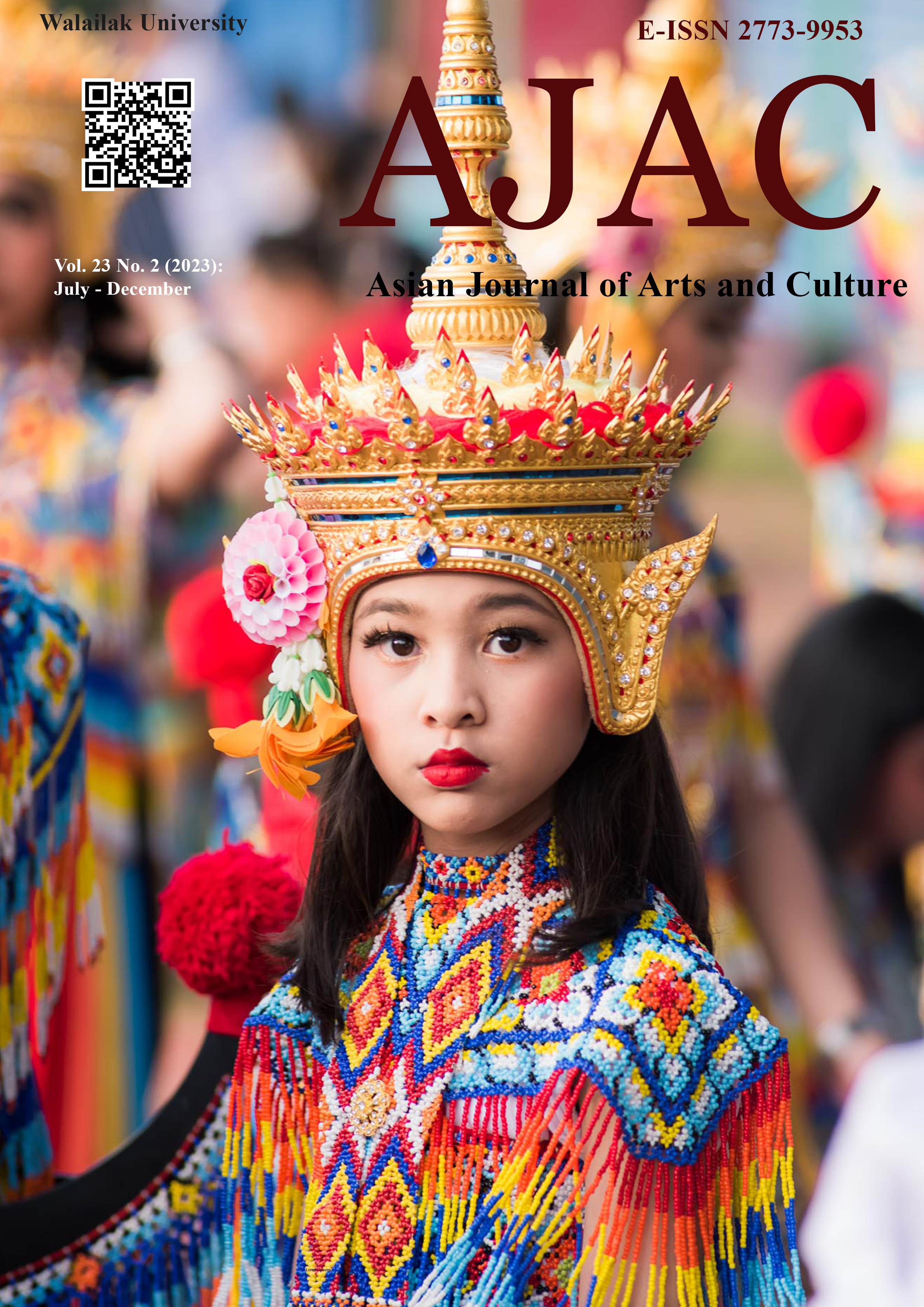The Analysis of Collaboration in Educational Quality Assurance Policy: A Case Study of Walailak University
Main Article Content
Abstract
Collaboration is a contemporary management concept that is considered essential for achieving development policy outcomes. However, research on collaboration and quality assurance policies in higher education in Thailand has been challenging. The aim of this study was to investigate how collaboration contributes to the successful implementation of the educational quality assurance policy at Walailak University.To address this research question, a mixed-method approach was used which combined qualitative and quantitative research methods. This approach was chosen to provide a more comprehensive understanding of the subject and was based on the collaborative governance theory and resource-based framework. In-depth interviews were conducted with 13 key informants who are important actors in the quality assurance process at the university. These interviews were supplemented by a questionnaire survey of 400 respondents from various stakeholders at the university.
The findings of this study showed that facilitative leadership, incentive to collaborate, repetition of effort to collaborate and resource-knowledge sharing are among the key determinants contributing to collaboration processes in educational quality assurance. The results also indicated that these factors are interrelated and can contribute to the successful implementation of the university's quality assurance policy. Based on these findings, models of collaboration in enhancing quality assurance outcomes were demonstrated that resource-knowledge sharing, negotiation, trust-building, commitment to the process and shared-understanding have statistically significant positive impact on educational quality assurance outcomes including producing graduate outcomes, research outcomes, academic services outcomes and preserving arts and cultures. The practical benefits were proposed and discussed.
Article Details

This work is licensed under a Creative Commons Attribution-NonCommercial-NoDerivatives 4.0 International License.
© 2018 by Asian Journal of Arts and Culture, Walailak University. All rights reserved.
References
Ansell, C., & Gash, A. (2008). Collaborative governance in theory and practice. Journal of public administration research and theory, 18(4), 543-571.
Bock, G. W., Zmud, R. W., Kim, Y. G., & Lee, J. N. (2005). Behavioral intention formation in knowledge sharing: Examining the roles of extrinsic motivators, social-psychological forces, and organizational climate. MIS Quarterly, 29(1), 87-111.
Brewer, G. D., & deLeon, P. (1983). The foundations of policy analysis. Pacific Grove, CA: Brooks/Cole.
Chandarasorn, W. (2013). Factors affecting successful policy implementation: a review of existing models. International Journal of Humanities and Social Science, 3(8), 261-267.
Deutsch, M. (1949). A theory of co-operation and competition. Human relations, 2(2), 129-152.
Deutsch, M. (1973). The resolution of conflict: Constructive and destructive processes. New Haven, USA: Yale University Press.
Emerson, Nabatchi and Balogh (2012). An integrative framework for collaborative governance. Journal of public administration research and theory, 22(1), 1-29.
Fisher, R., & Ury, W. (1981). Getting to yes: Negotiating agreement without giving in. London, England: Penguin Books.
Fullan, M. (2001). The new meaning of educational change (3rd ed). New York, USA: Teachers Collage Press.
Gao, F., Wu, J., & Wang, X. (2016). Research on the relationship between effective communication and team performance. International Journal of Economics, Commerce and Management, 4(11), 19-24.
Gibbons, M. (2013). A transactional approach to collaborative quality assurance: The importance of shared understanding and commitment. Higher Education, 66(2), 209-221.
Gray, B. (1989). Collaborating: Finding Common Ground for Multiparty Problems. San Francisco: USA: Jossey-Bass.
Guzzo, R. A., & Dickson, M. W. (1996). Teams in organizations: Recent research on performance and effectiveness. Annual Review of Psychology, 47, 307-338.
Hargreaves, A., & Fullan, M. (2012). Professional capital: Transforming teaching in every school. New York, USA: Teachers Collage Press.
Johnson, D.W., & Johnson, R.T. (1994). Learning together and alone, cooperative, competitive and individualistic learning (4th ed.) Boston, USA: Allyn and Bacon.
Johnson, D.W., and Johnson, R.T. (2009). Energizing learning: The instructional power of conflict. Educational Researcher, 38(1), 37-51.
Komchadluek. (2020). Walailak University passed the quality assurance evaluation with an excellent level. News. Retrieved from https://www.komchadluek.net/news/edu-health/391670
Kozlowski, S. W., & Bell, B. S. (2003). Work groups and teams in organizations. In W. C. Borman, D. R. Ilgen, & R. J. Klimoski (Eds.), Handbook of psychology: Industrial and organizational psychology (Vol. 12, pp. 333-375). New York, NY: John Wiley & Sons.
Liu, J., & Li, Y. (2015). Research on the relationship between teamwork and team performance. International Journal of Economics, Commerce and Management, 3(9), 15-20.
Office of the Higher Education Commission. (2017). Manual for the internal quality assurance for higher education institutions. Bangkok, Thaland: Parbpim Ltd., Part.
Pfeffer, J., & Gerald, R. (1978). The external control of organizations: A resource dependence perspective. New York, USA: Harper & Row.
Schwab. (2017). The Global Competitiveness Report 2017–2018. Retrieved from http://www3.weforum.org/docs/GCR2017- 2018/05FullReport/TheGlobalCompetitivenessReport2017%E2%80%932018.pdf
Stoker, G. (2004). Transforming Local Governance: From Thatcherism to New Labour. London, England: Palgrave Macmillan.
Thomson, A. M., & Perry, J. L. (2006). Collaboration processes: Inside the black box. Public administration review, 66, 20-32.
Titus, S., & Hester, P. T. (2003). Incentives and teamwork: The impact of reward systems on team performance. Journal of Management, 29(3), 361-374.
Vangen, S., & Huxham, C. (2004). Enacting leadership for collaborative advantage: Dilemmas of ideology and pragmatism in the activities of partnership managers. British Journal of Management, 14, S61-S76.
Walailak University. (2019). Walailak University appeals to the result of the quality assurance evaluation of the academic year 2018 with a score of 4.75 in the excellent level. Retrieved from http://www.wu.ac.th/th/news/16719
Interview
President of Walailkak University. (25 March 2021). Interview. Walailak University.
Vice-Dean of school of Public Health. (24 March 2021). Interview. Walailak University.
Vice-President for academic and international affairs. (17 March 2021). Interview. Walailak University.
Vice-President for planning and strategic development. (4 March 2021). Interview. Walailak University.


